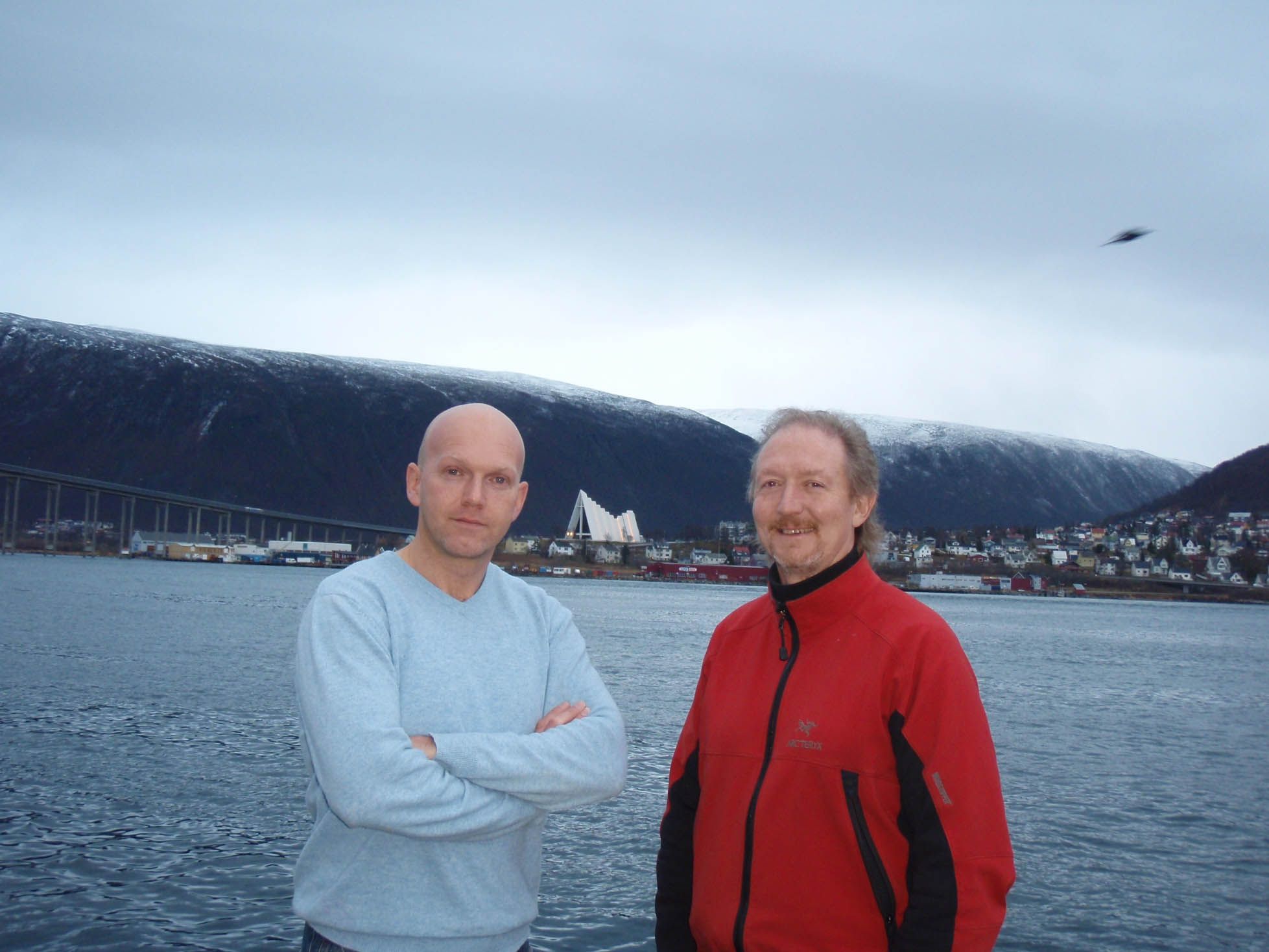Two professors, Ove Larsen and Svein-Halvard Jorgensen, at Nesna University College, in the small town of Nesna, Norway, are developing the podcast series. The professors are also working to develop an Arctic Network of Musicology, with the hopes of creating an international network for researchers interested in the contemporary musical expressions of the circumpolar region.
"The economic funding from UArctic means that we are able to interview central artists, politicians and researchers about main issues concerning music and culture of the northern regions," said Larsen. The project will also "expose important questions regarding the link between music, identity and place to the public and future students. This work will hopefully be a platform for building a future network of researchers and artists working with similar questions," he said.
This exciting development would allow students from countries all over the Arctic and the globe to learn about northern music through a concentrated, multimedia experience. A podcast is a series of audio or video files that is distributed to computers over the Internet. Students would subscribe to the podcast, allowing it to download automatically when new content is added.
The podcast will feature lectures by both professors, and interviews with experts such as social anthropologists, indigenous artists and possibly some very well known musicians. It is easy for the professors to concentrate the material, because they can rearrange and edit it as they like. Therefore, the podcast includes information that would be difficult to convey in a formal lecture series.
"The good thing about making this podcast is that you can have all these people on tape, who you couldn't bring into the classroom. We just go and visit them with our microphones and bring them to the students," said Jorgensen, who is trained as a social anthropologist.
As a student listens to the podcast relevant links and sound clips will pop up, they will be directed to important literature, and be required to take part in online discussions, providing a multimedia approach to education.
The best part about the program is that it will be available to anyone with an internet connection. Students from all over the globe and in all parts of the Arctic will be able to learn about the musical traditions, contemporary developments, and the context of music from the Arctic. This is education in the true spirit of the University of the Arctic.
The professors spoke about the possibilities for revitalization of traditional northern music through the podcast. "The folk music of the north hasn't been cemented in place, like traditional music from the south. It can be reinvented using contemporary soundscapes, making the north a culturally progressive region," said Jorgensen.
Larsen, who studied revitalization of fiddle music in northern Norway, pointed out the uneven representation and popularity of southern music in the north, while the musical traditions of the Arctic are nearly forgotten in some regions. For him, this is an example of cultural dominance of the south and he hopes the podcast series will create an appreciation for the unique, strong and evolving musical traditions of the north.
"We hope to create awareness of the fact that there is music from the north and it is just as important as Western classical music, and to create an element of pride in the northern traditions," said Jorgensen, who stumbled into musicology when he found a way to combine his love of snowboarding and jazz in a doctoral thesis about improvisation.
The idea of teaching through a series of podcasts came to the professors when they were presented with the challenge of providing musicology education to Norwegian students who were studying from all over the globe. The professors thought, to study music one has to hear music, it can't all come from a book and, knowing about the
Master’s in Musicology will be taught by Podcast
Mon, Nov 17, 2008
 The Centre for Northern Norwegian Music Research (SnoMus), at Nesna University College has been supported by the University of the Arctic to create a Master’s of Musicology course, 'Music, Culture and Context in the Arctic' that will be taught by podcast.
The Centre for Northern Norwegian Music Research (SnoMus), at Nesna University College has been supported by the University of the Arctic to create a Master’s of Musicology course, 'Music, Culture and Context in the Arctic' that will be taught by podcast. 